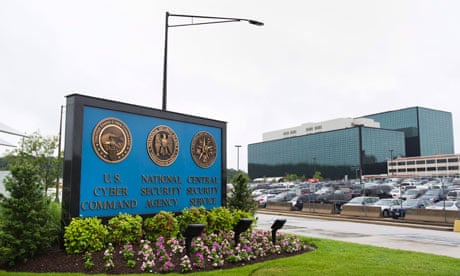The recent leaks of NSA programs to the Guardian and Washington Post have awakened a strong desire among many Americans to know more about how the intelligence community conducts its business.
Americans expect their government to do the utmost to protect our country, but that cannot mean trading our Fourth Amendment right to privacy for the promise of security. Most Americans understand the need to "connect the dots" to avoid another 9/11, as long as the intelligence community has a legitimate need for the information it seeks and is no more intrusive than absolutely necessary. Oversight is essential, and to the maximum degree possible, so is transparency. When Congress first created the Foreign Intelligence Surveillance Court (FISC) in 1978, it did so knowing that the court would, by necessity, conduct much of its work in secret, as it was specially designed to handle highly classified requests from intelligence and law enforcement agencies. However, the FISC does more than simply review and approve individualized warrant requests. The court interprets and construes the Foreign Intelligence Surveillance Act, applying legal and constitutional principles, much like any other federal court. The difference between the FISC and every other court in the United States is that there is no opposing counsel, and their interpretation of the law is highly classified and stays that way by law for 30 years.
For individual orders that refer specifically to sources and methods of intelligence gathering, secrecy is a necessary evil that is completely understandable. We don't want al-Qaida to know how or when we may have access to their communications. But releasing the generalized legal reasoning of the judges and the Justice Department would do nothing to inform or aid our enemies. Instead, it would inform the American people about how the laws that their representatives have passed are being used and interpreted, and give them fuller information to debate the merits of an approach and its results. To remedy this problem, we have introduced bipartisan legislation in both houses of Congress called the Ending Secret Law Act, along with Senators Jeff Merkley (Democrat from Oregon) and Mike Lee (Utah Republican). Our bill would require public disclosure of FISC opinions that contain significant interpretations or constructions of the Foreign Intelligence Surveillance Act statute. It is not sufficient for Americans simply to be aware of the laws that Congress has passed – they need to know, and deserve to know, how the courts are applying them. "Secret law" is anathema to our democratic traditions and the rule of law.
Under the Ending Secret Law Act, the attorney general would be required to release opinions by the FISC that contain significant interpretations of the law in an unclassified format. If the attorney general determines a full FISC opinion cannot be declassified due to national security concerns, they must order a declassified summary produced. It also requires the DOJ to report on the number of opinions that will remain classified, giving citizens insight into how often the programs are used. Our legislation balances the legitimate need for secrecy, with the imperative to inform the public about the laws passed by their representatives and how they are being put into action. The Obama Administration is under increasing pressure to make the FISC more transparent, and has stated that they are looking into declassifying orders. They should do so quickly. But administration action alone is not enough. Administrations change, but the practice of declassifying these significant opinions must continue. Knowing that their interpretations of the law will be publicly scrutinized will help ensure that future courts and administrations follow congressional intent and respect citizens' Fourth Amendment rights. The president has said that he welcomes the debate about the surveillance programs that have been disclosed, and we welcome that debate as well. Yet when the fundamental information that is needed for Americans to make up their mind about these programs is withheld, a true debate is impossible It's time to let some sunlight into the chambers of the Foreign Intelligence Surveillance Court, so Americans can have an informed discussion about how to balance protecting our nation and preserving our privacy.

Republicans and Democrats agree: Fisa oversight of NSA spying doesn't work
This article is more than 10 years old
'Secret law' is anathema to our democratic traditions and the rule of law. We have introduced legislation to change this
Explore more on these topics
Comments (…)
Sign in or create your Guardian account to join the discussion